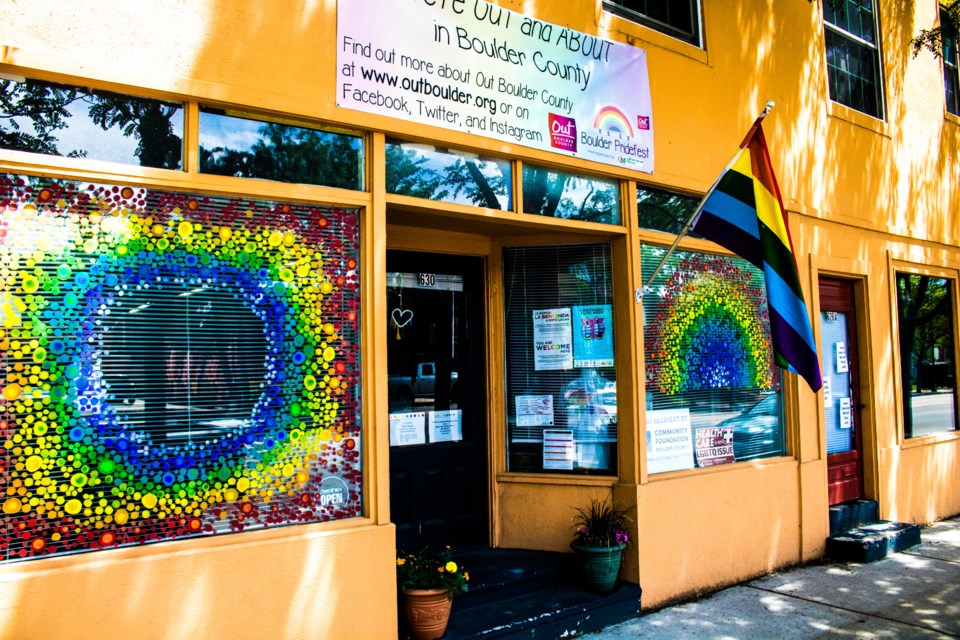The realities of operating a rented space in the era of COVID-19 is prompting Out Boulder County to close its Longmont office.
The $2,500-a month office at 630 Main St., was too expensive to run, Executive Director Mardi Moore said.
“It’s a tough decision,” she said. “It doesn’t make sense to renew a lease on a space when we don’t know when we can use it again.”
She emphasized work will continue in Longmont to address issues of the LGBTQ community, even though its physical presence in downtown Longmont will evaporate after five years of operation when the building’s lease expires in August.
“There are a lot of special memories in that office,” said Moore, who lives in Longmont as do many members of her staff. “We know some queer kid riding in the car with their parents saw that flag hanging out in front of our office, and it gave them a little bit of courage.”
“We are figuring out now how to mitigate that somehow,” she said, adding she may ask a Main Street business to hang the group’s flag.
For a time, Arlene Cohen Miller volunteered at the Longmont office as part of a weekly support group for family, friends and co-workers of transgender and gender expansive individuals and those questioning their gender.
The Longmont facility was a sanctuary for youths who felt out of place everywhere else, Cohen Miller said.
“All kinds of kids gathered there that didn’t have anyplace else to go,” she said. “They felt singled out because they were different and this place made them feel safe.”
The office symbolized how traditionally conservative Longmont has changed over the years, Cohen Miller said.
“I think Longmont is a much more accepting place now,” she said.
Since mid-March all support groups from the Longmont office have been meeting online while most of the staff continues to work from home. And “we weren’t able to see many volunteers each week,” Moore stated in a letter posted Thursday to the Out Boulder website and shared via Facebook.
In January, Out Boulder signed a new long-term lease for its new Boulder location.
“Given the undetermined amount of time will operate virtually, spending donor money on two locations while not using one of them does not seem wise,” Moore said. “By reducing this significant monthly expense, we are able to direct more money to programs and less money to space we are unable to use.”



